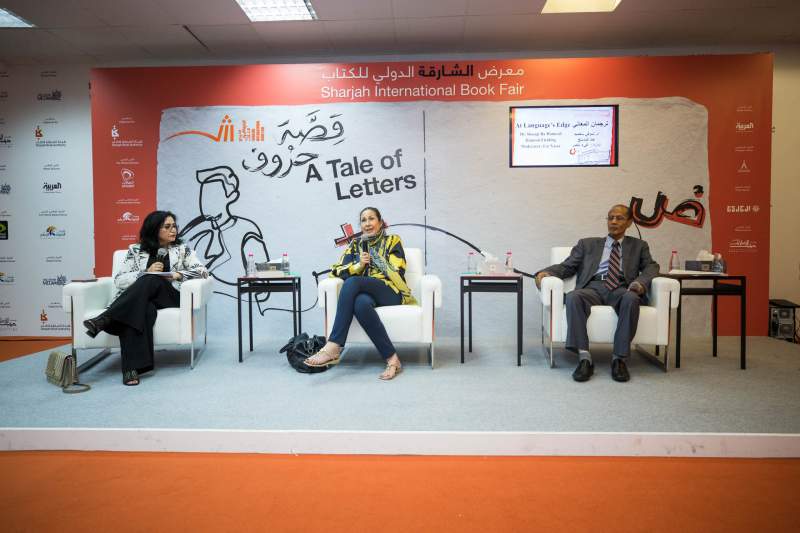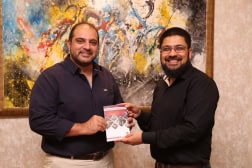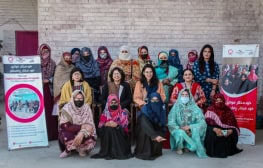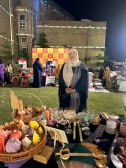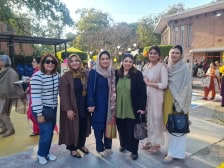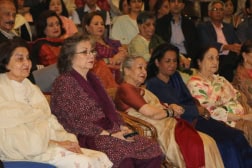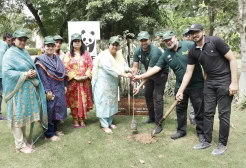SHARJAH – “Without translation, we would live in an island of isolation”. This was the prevailing thought with which the session began. Gracing the stage during Sharjah International book Fair was Hannah Fielding, an award-winning contemporary Romance fiction writer. She was born in Egypt, spoke to her nanny in French and parents in English.
“My French governess Zula started telling me stories when I was five. Two years later she told me I had to tell her stories. Especially at night, I would listen to the sea, feel the wind and imagine that there were fairies – thoughts that very enthusiastically encouraged by Zula. Writing runs in the family. My grandmother has written poetry and two books. My father has also written a family memoir,” Fielding.
Hannah who started writing stories at the age of 14 was often reprimanded for writing love stories. “I used to circulate my stories in class, which got me in trouble. My mother was called in at least once a month because the nuns used to catch my innocent love stories. Writing was and still is like escaping into an imaginary world. My mother never punished me, and my father was so encouraging. He would say, ‘you’ll be published one day’. Unfortunately, they never got to see that.”
Talking about translation and how she got around to writing in different languages, she said, “First, I wrote in French and sent it to France. They wrote back. They said this book has a lot of potential, but in France today we are inundated by the American market. So you’ll be better off writing a translation and sending it to the US”.
While literary translation continues to be accused of being unable to keep pace with the original text, Hannah further said, “I want to write about Romania. But I know the market there for translation is really small”.
She highlighted that Interpreters have often been accused of being inaccurate and unfaithful in their translation, but despite the accusation, interpreters help us understand each other and the world better.
Acknowledging a noticeable movement in the field of translation Dr Shawqi Bahumaid who is a Professor of Linguistics is Yemen said, “the momentum in translation picked up from the end of 90s and while at that time Foreign language to Arabic translation and its reverse was only 3000 books per annum, this number has risen to 6000 now”.
Acknowledging, that literary translation has a lion’s share, Dr Bahumaid also said, “the selection of books for translation is still quite random. We don’t have a proper pan Arab organisation for translation. There is no specific strategy and plan in translation. There are only humble efforts”.
Both authors, however, acknowledged that traveling to different countries enriched their cultural experiences and enhanced their creative output. But still a large chunk of good literary work remains outside the realm of translation, mainly due to the lack of properly organised efforts and perhaps they don’t meet commercial interests of publishers.

